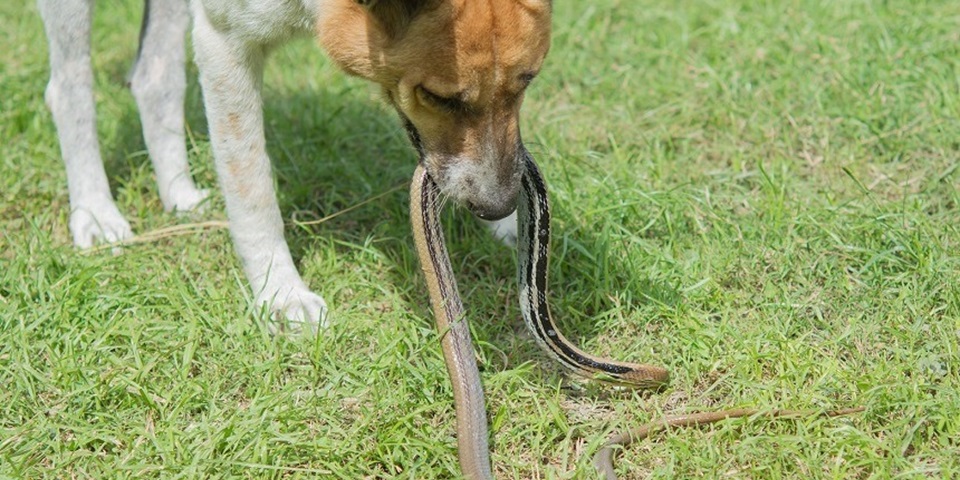News
Heat wave, snakes bites deadly risks for pets

With Perth set to sizzle this summer, vets at The Animal Hospital at Murdoch University are reminding pet owners about the deadly dangers of heat stroke and snake bites
Dr Jill Griffiths, who is the Emergency and Critical Care Supervisor at The Animal Hospital’s emergency vet clinic, said scorching hot days could have a devastating effect on animals, particularly cats and dogs.
“Our furry friends are at risk of developing heat stroke when temperatures spike, especially this early in the season when their bodies haven’t had a chance to acclimatise,” Dr Griffiths said.
Older dogs and cats, puppies, kittens and breeds with short snouts such as pugs, bulldogs, boxers and Persians were most susceptible to heat. Extremely active and playful dogs were at risk, as they can overexert themselves and collapse from heat stroke.
Heat stroke cases brought to The Animal Hospital at Murdoch University often involved pets left in cars – even for only a few minutes – as well as those without access to shade.
Dr Griffiths said this included dogs tied up in backyards who had become exposed when the sun shifted in the sky. Dogs in utes were also at risk for burns from metal heating up.
Signs of heat stroke include excessive panting or open mouth breathing in cats, bright red gums and skin, vomiting, diarrhoea, collapse, loss of consciousness and seizures. In other animals, open mouth breathing, lethargy and collapse are the most consistent signs.
Fun in the sun
Early mornings and evenings are the best times for play, preferably when the temperatures are below 32 degrees and it is not humid. Dr Griffiths recommends taking a bowl and fresh water when taking pets out for exercise.
“The key is to keep the core body temperature down by wetting the skin, getting into the shade or cooling down in air conditioning. Dogs don’t sweat, so giving them a paddle pool with water can really help,” she said.
If people are concerned about heatstroke, they should soak their pet with cool or tepid water before loading them into the car to the vet and to keep the car air conditioner on high during the trip. She said to never cover your pet with wet towels, as these can act as insulation and prevent cooling.
Snake bites
Snakes are more active in hot weather, often hiding in long grass and waterways and are deadly dangerous for dogs and other mammals, but with the correct treatment over 90 per cent of pets survive snakebite.
“Animals bitten by snakes may appear weak and groggy, vomit, have difficulty breathing, have blood in their faeces or urine and collapse,” Dr Griffiths said.
Some pets don’t exhibit any signs of being bitten early on, and puncture marks can be hidden by fur – so if you have seen your pet near a snake, the best advice is to take them to a vet because left untreated the consequences can be costly and deadly. Don’t waste time trying to find puncture marks.
Pet owners can help vets by trying to identify the type of snake that has bitten their pet. If the snake is dead, please bring it in, but remember it is both illegal and dangerous to try to kill a snake. Brown snakes such as the dugite and western brown are the most common in Perth, followed by tiger snakes and very rarely death adders, which are mainly found in the hills region.
If your pet stops breathing, Dr Griffiths recommends providing mouth-to-nose resuscitation by lying them on their side, closing their mouth and giving breaths through the nose.
Pet survival tips
- Keep your pets inside and preferably in air conditioning.
- Do not exercise them during daylight hours.
- Take dogs for short slow walks. Do not encourage them to run or chase eg playing ball is not recommended. Pets that are overweight, short faced or have pre-existing heart or breathing problems are at increased risk and should not be outside during daylight hours.
- Give all animals plenty of fresh water and shade, and allow them to snooze away the hot days in a cool place.
- Fill water bottles with water and freeze, and put out for rabbits, guinea pigs, birds and reptiles to help keep them cool.
Don’t leave your animals in the car, even for short time periods. Make sure the air conditioning is reaching where your pets are in the car